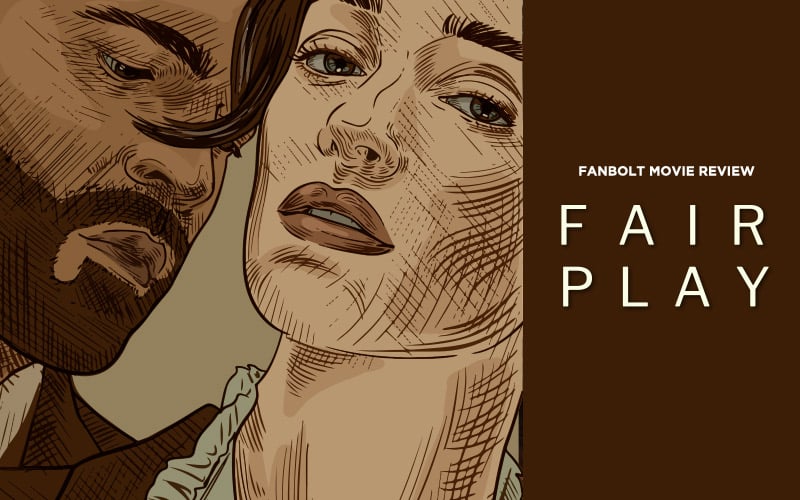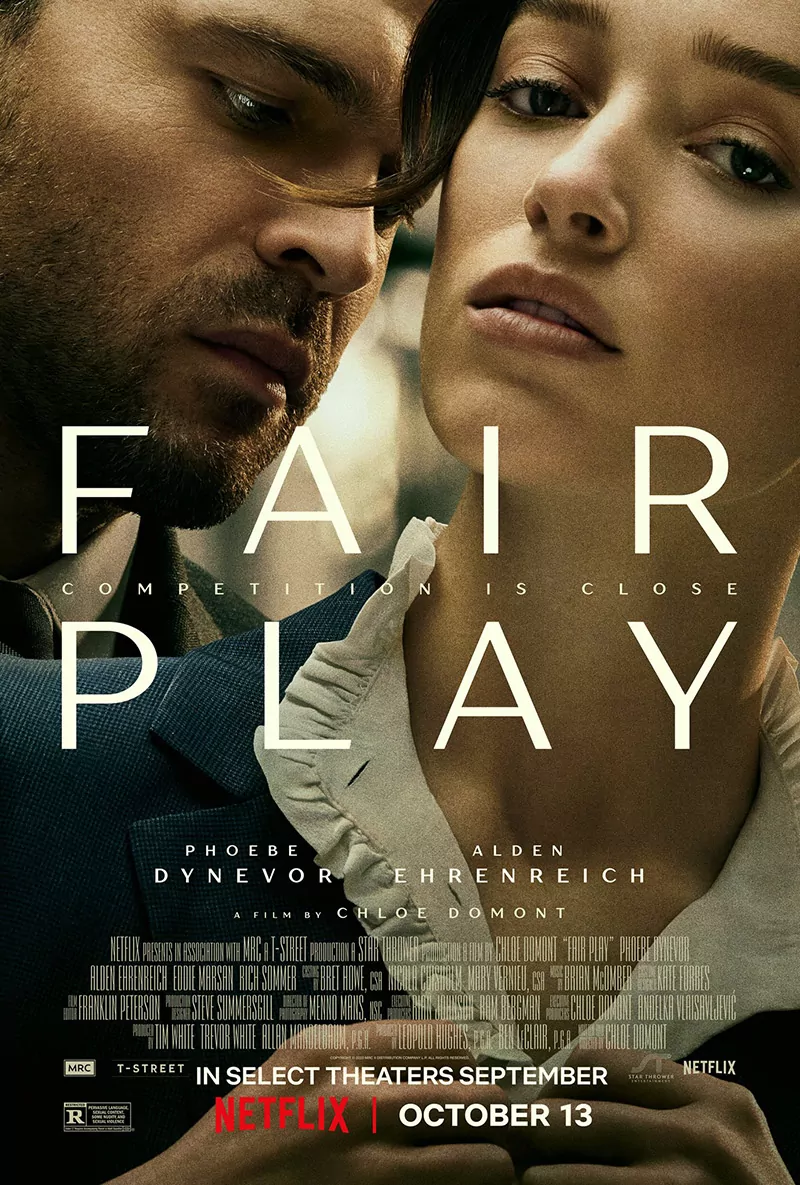‘Fair Play’ Movie Review: 2023’s Most Uncomfortable Movie

Fair Play, a film that delves into the cutthroat world of Wall Street hedge funders and the toxic masculinity that pervades it, is an overwrought melodrama that borders on parody. With Phoebe Dynevor of Bridgerton fame taking the lead, and Chloe Domont, a seasoned TV writer and director, at the helm, the movie attempts to address timeless gender-role issues and the glass ceiling in the corporate world. However, it falls short of delivering anything original or subtle, relying heavily on cliches and over-the-top scenarios.
The premise here is simple. The film follows a young couple working at a cutthroat hedge fund. No one knows they’re dating, and when one gets an unexpected promotion, it pushes their relationship to the brink, threatening to unravel far more than their recent engagement.
Fair Play Movie Trailer
Fair Play Movie Review: What I Did and Didn’t Like
With a 1 hour and 53 minute run time, Fair Play is one of the most uncomfortable films I’ve endured in recent years. Despite the commendable performances from the cast, the film is marred by its script, making it far from enjoyable.
So what’s the issue? The central conflict, while conceptually interesting, lacks depth in its execution. Characters are thinly drawn, coming off as surface-level constructs rather than well-rounded, relatable (or likable) individuals. The film offers little in terms of character development, leaving the audience with an unsatisfying, hollow viewing experience.

Script
So, let’s dive into the script. It’s hard to overlook its glaring issues. Given the opening scenes, my initial assumption was that a male director might be behind the film. However, Chloe Domont not only helmed the direction but was also the creative mind behind the screenplay.
My first issue with the film was an interesting one. In the film’s opening sequence, we’re introduced to Emily, played by Phoebe Dynevor, and Luke, portrayed by Alden Ehrenreich. They’re attending a wedding, where they sneak away for some sexy time that soon takes an awkward turn. The depiction of Emily’s period, marked by an excessive amount of blood, feels grossly exaggerated and unrealistic.
Firstly, the amount of blood depicted is A LOT for the context. Secondly, I struggle to believe that a woman, aware of that time of the month, would choose to wear a white silk dress without a pad or tampon in place. Lastly, isn’t it a common understanding that you don’t wear white to a wedding?
A Weak Screenplay
While this may seem like a trivial critique, it reflects the overall superficiality of the script. The story and characters never delve beyond the surface level, resulting in a lazy and over-the-top narrative.
Exploring the narrative of a woman being more successful than her male partner is a refreshing concept, seldom seen on the big or small screen. It presents an intriguing relationship dynamic for exploration.
However, Fair Play fails to extract anything substantial from this promising premise. The characters lack depth, and their motivations are unclear, reducing them to mere career-driven figures with no backstory or relatable traits. This leads to a lack of audience investment in their journey, rendering the characters unlikable and their fate inconsequential.
Sure, the topic of a woman being more successful than a man is a narrative we don’t frequently see on the big or small screen. It presents an interesting relationship dynamic to explore. However, Fair Play fails to extract anything meaningful from this concept. The characters lack depth, and their motivations are unclear, reducing them to mere career-driven figures with no backstory or relatable traits.
Simply put, we hate the characters. And, we have zero investment in what happens to them.

Acting
Setting aside my concerns with the screenplay, I must acknowledge Phoebe Dynevor and Alden Ehrenreich’s performances. They did a decent job considering what they were given. Yet, I can’t help but wonder how their performances would have unfurled had they been given richer material to work with.
Their potential, while evident in individual scenes, is somewhat stifled by the constraints of the script. And despite the palpable intensity that both Dynevor and Ehrenreich bring to their roles, their on-screen chemistry feels contrived and unconvincing. The frequent reliance on cliched, sex scenes to portray their relationship undermines the authenticity of their connection and hinders meaningful character development.

Overall
Fair Play, the feature debut of writer/director Chloe Domont, is a relationship thriller that packs dramatic tension but, unfortunately, stumbles in its execution. The narrative is predictable, and the over-the-top climax detracts from what conceptually would have made an interesting film.
Despite the flawed direction, the film attempts to explore pertinent issues of gender roles and societal expectations, a commendable effort that gets lost amidst the melodrama. The film’s saving grace lies in the commendable performances of its lead actors. However, Domont’s screenplay suffers from unnecessary plot additions and an implausible resolution, contributing to the overall frustration that the movie creates.
To put it simply, this one is painful to watch. And I don’t recommend it.
Fair Play Movie Review:
Grade: D
Note: FanBolt’s Featured Image is fan art. We create this fan art purely for the love of design and fan culture. (We’re movie and design nerds). The property and fandom inspire the artwork, and no infringement is/was intended. Fair Play is the property of Netflix.


Responses